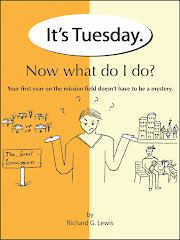My recent trip to West Africa was what I billed as a “working
vacation.” The vacation part was
visiting my daughter and her family who have been working in the country for
past eight years. The working part
was my time in observing the culture. Here are some observations from my
three-week working vacation.
RELATIONSHIPS ARE KEY - Both my son-in-law (referred to
following as A, and my daughter are
gifted in genuinely being
interested in people. They
live in a part of the city that is not fancy, surrounded by half-built houses
and many people in the neighborhood don’t have the basics of life, i.e. decent
shelter, running water, electricity, etc.
The streets are sand, littered with trash and the extreme heat makes for
a challenging living environment.
(Full disclosure, my kids live in a nice house and their yard is full of
trees and flowers, but that’s due to A’s
gift and diligence in making the desert bloom).
Twenty-feet outside their compound is a bunch of guys who
drive horse carts for a living. Several
years ago Musa, a village guy, moved across the road with his horse and cart. He speaks no French, only Wolof. Because his father died when he was
less than five years old, Musa grew up as a Talibe boy. (https://en.wikipedia.org/wiki/Talibe).
Because he was a Talibe kid, Musa doesn't know how to read or write, as the
main reason for the school is to recite the Quran in Arabic, which no one
really understands or uses outside of their religious rituals.
Sometime back Musa asked A to visit his village which is 200 hundred kilometers away from the city. I volunteered to go with A because, even though I don’t speak French or Wolof, as teacher and student of culture I at least could be a participant observer and learn some things. It also gave me a chance to be around A and my grandson. My son-in-law enlisted a guy he works with, Ernest, who speaks English, to go with us so I wasn’t completely in the dark.
After a four-hour drive, we arrived in the heat of the day
(about 110 degrees). Of course
Musa’s mother, brother, sisters and extended family members were happy to see
him. I can’t recount everything
that happened in the village, but probably the most significant moment in the
whole trip was within an hour of our
arriving in the village. As they
escorted us to a mud hut to rest, Msua asked me a question (again, in Wolof,
translated by Ernest into English.”
“Why is A
different” he asked?
“He and his family have been so kind to us. Even his children are respectful, well
behaved and always speak to us. I have
never met anyone like A. Can you tell me why he is so different? Is it because he is educated? What makes him different?”
We were all quite stunned with Musa’s question. I breathed a quick prayer and then
answered, “There are at least two
reasons I believe A is different,” I
replied. First, A grew up in Africa, so he probably
understands the people better than most toubab’s (Europeans or white people). But the main thing that makes A different is that he is a follower of Isa (Jesus). Because of the love of Isa in the heart
of A he demonstrates that love and
concern for other people.”
Musa nodded, no doubt not really understanding my answer,
but that’s okay.
Musa’s question to me was years in the making. A
has given all the horse guys a solar recording of the Gospel, which they listen
to all the time. Though Musa’s question
came as a surprise to all of us, it was born out of the many days and nights of
A and the whole family being good neighbors, caring for people
and just being, what we call, salt and light, in the mundane workings of life.
I tell my students regularly that the key to bringing people
to understanding the Gospel is not through big programs and using all types of
methods or gimmicks for evangelism.
Most people become followers of Christ through having and building trust
and relationships with others.
Will Musa become a follower of Isa as his friend A?
Obviously no one knows, and quite honestly, that should not be our
greatest concern, for you see, salvation belongs to the Lord. What we do know is that Musa and his family
doesn’t have a chance for salvation without someone being truly interested in
them, talking with them as a good neighbor. Musa is not as an object for evangelism for my son-in-law
and daughter, they just love people and that sets them apart from others, and
it shows and has an impact. Simple
things, like our Lord said, “Whenever you did one of these things to someone overlooked or
ignored, that was me—you did it to me” (Matthew 25:35-40).
Humanly speaking, Musa has a steep climb from being a
cultural Muslim to a follower of Isa.
The “prison of disobedience” (as my friend Shewood Lingenfelter refers
to) is their family structure, which is major barrier for Musa in making that
eternal decision. However, down
through the ages God has brought people to Himself in spite of the obstacles,
so we have hope.
Relationships, being truly interested in others, that’s what
makes A and the family different from
other toubab’s. Coupled with the love of Christ and the
work of the Holy Spirit, people find their way to the true and living God, one
person at a time.



